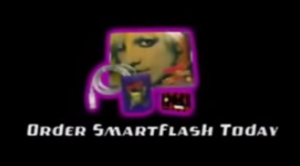
Smartflash LLC is a company that operates out of a tiny office suite in Tyler, Texas. It has no employees or products and no assets except for a handful of patents—but it may be getting a whole lot of cash. A jury verdict (PDF) that came out late yesterday orders Apple to pay the company $533 million for infringing three of its patents.
The company is no "patent troll," its lawyer insisted in e-mail and telephone discussions with Ars. He says that term doesn't apply because the company is part-owned by founder Patrick Racz, who's the named inventor on the three patents found to be infringed, numbered 7,334,720, 8,118,221, and 8,336,772. All three are related to downloading digital content.
"You have the inventor who came up with the idea, disclosed it to the public in a patent application to advance the state of the art, and spent 15 years staying involved as the main figure who always believed in his idea," said Smartflash attorney Brad Caldwell, who discussed the case with Ars by e-mail and telephone.
If the verdict is upheld on appeal, Smartflash's win will be the largest patent verdict ever won by a patent-assertion company or individual inventor. Two other larger verdicts, Saffran v. Johnson & Johnson ($593 million) and Mirror Worlds v. Apple ($625 million), were overturned after trial. Even larger verdicts exist, with the record being $1.17 billion, but those cases were all won by operating companies or universities.
Racz, who lives on the English Channel's Isle of Jersey, first filed for his patents in the late 1990s. Back then, Caldwell says, Smartflash was an operating company with a real product. But by 2002, the business of Smartflash was dead. A company Racz partnered with "walked away from the deal and left him in a bind," Caldwell explained. The inventor "pulled together every cent he had to complete the patent applications."

Today, Racz splits his time between London and the Isle of Jersey. His work consists of managing his patent lawsuits and getting more patents. "He raises a family and does a lot of volunteer work," said Caldwell. "He also works with the patent office. They're issuing more patents on the ideas that he disclosed 15 years ago."
Next on trial: Google, Amazon, and Samsung
Caldwell wouldn't describe Racz's inventions over the phone, fearing Apple lawyers would use any description put on the record against his client in further litigation. Instead, he provided a prepared statement describing the patent claims as covering "devices, such as handheld multimedia devices, that include certain functionality to enable users to easily pay for and download protected content."
Racz and Smartflash have made clear they believe they're owed money for practically the entire world of digital content. Their infringement claims against Apple named not only the iTunes Store and App Store infringe, but any product that can hook up to those stores infringes, including iPhones and iPads.
It isn't just Apple, either. Smartflash has sued all the biggest players in the digital-download universe. Caldwell has trials coming up against Samsung, Google, and Amazon, all of which will have to face Smartflash lawyers and Racz in the same East Texas courtroom they have chosen.
Smaller companies have not escaped their notice. In the same complaint (PDF) that named Apple as an infringer, Smartflash sued three much smaller companies, because they distributed apps that feature in-app purchases or in-app advertising. Those three defendants, Game Circus, Robot Entertainment, and KingsIsle Entertainment, were all dismissed from the case late last year; it isn't clear whether they settled or Apple agreed to absorb their liability.
If Smartflash believes its patents cover in-app purchases, tens of thousands of small developers become potential targets. Caldwell wouldn't say whether there were any plans for additional licensing or lawsuits. "I'd prefer not to address that," he said. "It's an unfair question."
Considering the size of the other defendants, the numbers made public yesterday suggest that Caldwell's team could be seeking billions at the end of the day. Their $533 million record-breaking win is actually substantially less than the $852 million they sought.
This month alone has seen no less than three jury trials won by companies following the "patent troll" business model. Earlier this month, in a trial held by the same East Texas judge who oversaw the Smartflash case, Samsung was ordered to pay $16 million when it was found to infringe patents that Rembrandt IP argued cover all recent Bluetooth standards. The week before that, Intellectual Ventures won $17 million in a trial against Symantec.
The big wins for patent trolls come at a time when they're under increased political fire, as Congress ramps up for a renewed debate over patent trolls. Hearings in the House of Representatives about patent demand letters are scheduled for Thursday.
The patent system, just as it should be
Apple sent Ars a statement with tough language, emphasizing that its innovations are its own:
Smartflash makes no products, has no employees, creates no jobs, has no US presence, and is exploiting our patent system to seek royalties for technology Apple invented. We refused to pay off this company for the ideas our employees spent years innovating and unfortunately we have been left with no choice but to take this fight up through the court system. We rely on the patent system to protect real innovation and this case is one more example of why we feel so strongly Congress should enact meaningful patent reform.
I asked Caldwell directly—why should Racz, with a failed business from long ago, be paid so much money for a system he admits he had no hand in building? "Are patent cases new to you?" Caldwell asked me. The Smartflash case is a "great example of why the patent system exists." He continued:
The thing about a patent is—let's say you have a university professor who spent two years researching something. It's irrelevant the effort that [an infringing company] spent to build it. It's the person who came up with it first. That's the way the Constitution, and the patent laws, are written. It's designed to cause people to spend money and time innovating. The patent office publishes it, so that advances the state of the art. In exchange for that, you get a property right.
Apple focusing on, well, we put time and money into it—that is utterly irrelevant. They made the same argument to the jury, and the jury understood. They're still supposed to respect other people's intellectual property, the people who did it first.
The question is, what are they doing trespassing on the patent claims owned by Smartflash?
It's an argument that leaves many unsatisfied, but the law is unquestionably on Caldwell's side—and the money is flowing his way.
Before founding his own firm, Caldwell began his career at McKool Smith, the law firm that mastered the art of wresting large jury verdicts from tech companies in the small towns of East Texas. His list of representative clients is a who's who of companies that no one had ever heard of, until they were able to use a batch of patents to pound tech companies in court. It's a greatest hits list of patent-troll smackdowns, including i4i v. Microsoft, VirnetX v. Microsoft, VirnetX v. Apple, Opti v. Apple, Bedrock Computer Tech v. Google, TGIP v. AT&T, and many others.
Listing image by Flickr user MaxVT
reader comments
229